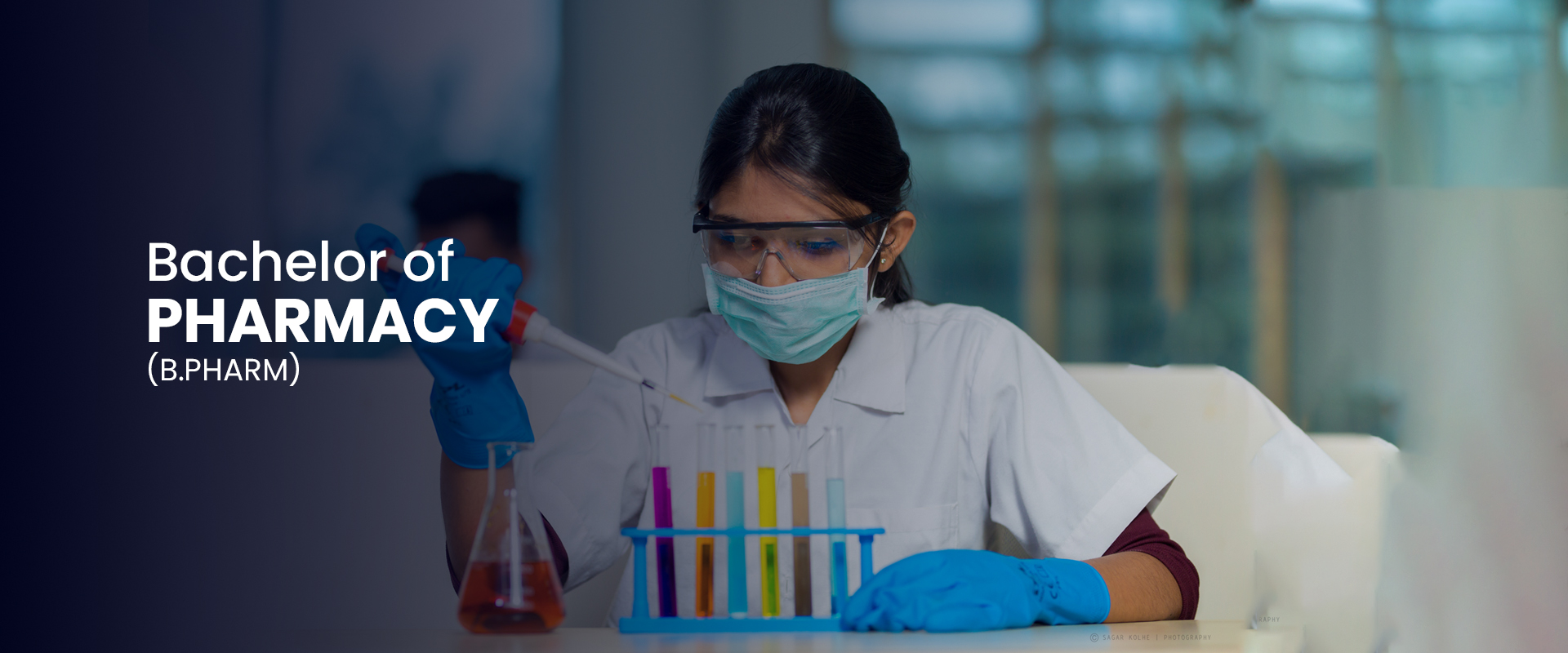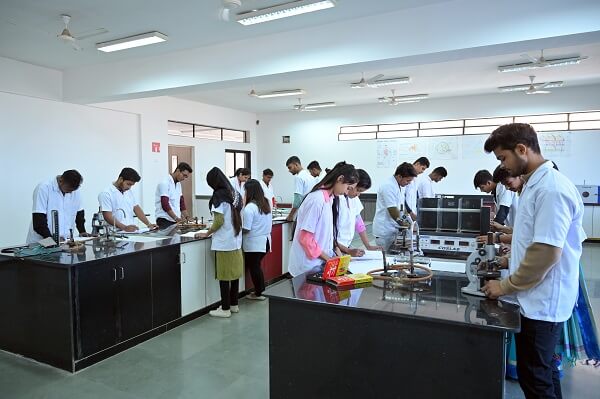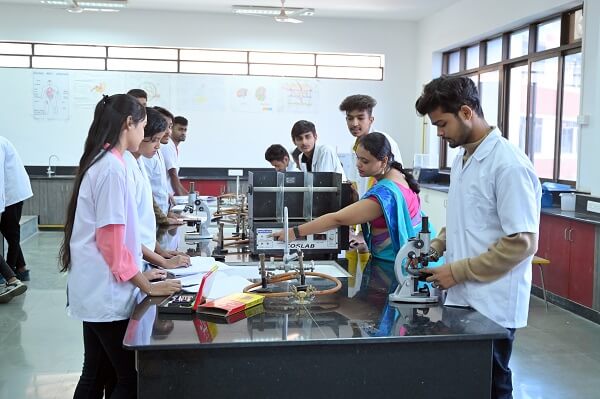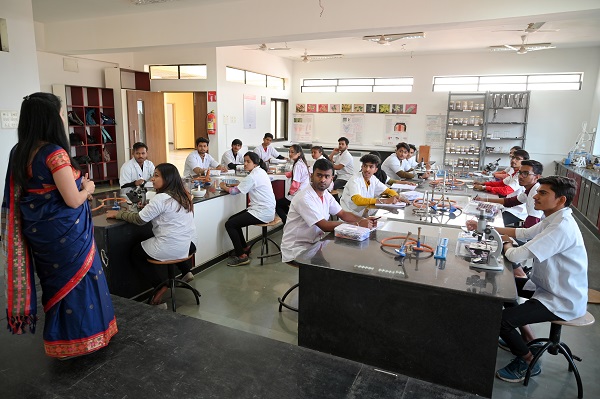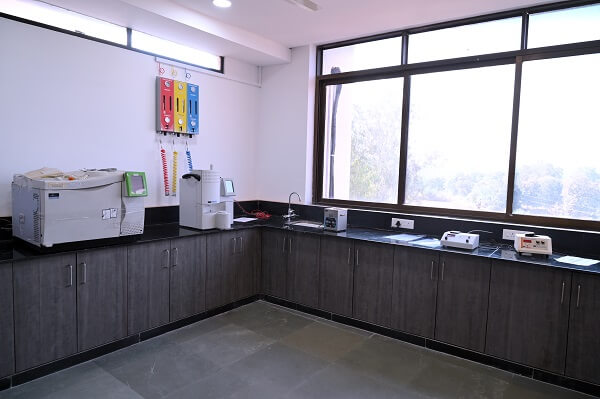About B.Pharm
Career Opportunities in B.Pharm

Community Pharmacist
A community pharmacist is a local pharmacist who works in a retail pharmacy or retail drug store. Its main activity is to distribute medicines to the general public after careful consideration of the doctor's prescription.

Hospital Pharmacist
Hospital pharmacists dispense medicines after confirming the doctor's prescription, just like community pharmacists, but they do so at the hospital's dispensing pharmacy

Medical Representative
This profession allows you to travel and meet highly qualified and respected members of the medical profession viz Physicians and other medical personnel.

Drug Inspector
A drug inspector is one of the most lucrative career options for students with a B. Pharmacy degree
Fee Structure & Eligibility
| Programme | Sem | Year | Mode | Eligibility | Academic Fees Per Year (INR) |
Special Fees (Incl. Library Fee & Examination Fees) Per Year (INR) |
Fees Per Year |
|---|---|---|---|---|---|---|---|
SCHOOL OF PHARMACEUTICAL SCIENCE (UG) |
|||||||
| B.PHARM | 8 | 4 | Sem | The candidate should have passed 10+2 examination or its equivalent examination with English as one of the subjects and Physics, Chemistry, Mathematics or Biology as optional subjects individually. | Rs. 1,25,000 /- | Rs. 10,000 /- | Rs.1,35,000/- |
Note:
- Admission Form and Prospectus Rs. 1000/- (One Time).
- Caution Money Rs. 1000/-
- Hostel Fees Rs. 1,10,000/- per annum + 5000 (Deposit Rs 5, 000 at the time of Admission only on refundable basis) Minimum 4 Occupancy
- Transportation Fees as applicable based on Route and Pick Up Point.
- Uniform Cost Rs. 6000/-

